|
Have you ever thought of dumping your old security cameras as a way of getting rid of them completely? Or you just made an upgrade and don’t know what to do with the old surveillance system? Well, if yes, you’re not alone, and we’re here to give you some vital tips for recycling all your security cameras while maintaining a clean environment. Recycling of electronic gadgets not only add value to the environment but also enhances the proper circulation of resources while minimizing waste. Many think that only electronic appliances such as TV sets, radios, music systems, and hard drives are recyclable while others like security cameras aren’t. This is not true since E-waste campaigns cater to all types of electronic gadgets. That said, below is all you need to know before disposing of your security camera systems. Why recycle? You could be asking yourself, what are the benefits of giving away my old camera when I can keep it safe in my store? Well, you have an idea, but it’s not good enough, both for you and those around you. Some security camera systems contain sensitive data you won’t want to find a way into the hands of hackers and other third parties. If you own a company, for example, and you just upgraded the security system, it means you’re no longer using the old one. The latter could have high-value footages that could compromise the level of security in the firm. Instead of attracting cyber attackers to your premises, it’s in the best interest of you and your clients to copy the data to some more secure storage before destroying the hard drives and other memory allocations. Sometimes the process of re-setting the hard drives is a bit complicated and this could mean some data are left un-erased. The best option here is to consult an E-waste recycling firm that will take care of the data wiping process, drive destruction and eco-friendly recycling. Preparing for the Ewaste recycling event If you live near some major US city, chances are there are sponsor events held throughout the year for recycling of electronic gadgets. Before you fill out the E-waste recycling request, you want to make sure that you’re fully prepared for it. Many times, security cameras support external storage and hence data won’t be available on the camera itself. Before packing your camera for recycling, check to see if it has some form of storage. If yes, find a way to transfer that data to safer storage before attempting to re-set or erase it. When destroying such data proves hectic, don’t worry, just make sure you inform the E-waste recycling firm about the data. They will find a way to fix it. Sometimes, upgrades come in a complete package; that is, security cameras come with new hard drives and storage system. Such systems are often installed as a unit and the old ones need to be removed completely. This is where you’ll need to destroy the hard drive data before recycling. Since it’s your own decision to recycle any electronic component, you can choose to re-sell the more valuable parts of the security system such as functioning hard drives and cables. Just make sure all data have been erased to avoid security breach and other inconveniences. Data destruction process According to https://avarecycling.com, there are many ways of destroying a piece of equipment containing sensitive data. If you want to see the data being destroyed right-away, you’ll opt for the On-site Data/Hard-drive destruction service. The other available options are; Off-site Data destruction and Off-site hard drive destruction. There are also different methods in which data can be erased without necessarily punching or physically destroying the hard drives. Below are the common methods through which your hard drive can be rendered useless and hence safe for recycling. . Degaussing . Punching . Shredding The above three methods are quite effective. Let’s take a look at each one in details. Degaussing This is a special data destruction process that uses the law of magnetism to completely corrupt the hard drive memory. Here, the magnetic field in the hard drive is decreased to a point where the entire memory and data stored are destroyed. Punching As the name suggests, punching is a physical data destruction method that is low-cost and effective, regardless of the type of hard drive. This service will put a hole via the hard disk/ drive and won’t be used any further. Such gadgets will only be recycled for precious metals. If you’re on a budget, this option is for you. Shredding This is the most preferred option among the larger companies and corporation which prefer to see that the hard drives and data have disappeared completely. Unlike the above two options, shredding is a bit costly but ensures that all your data have been destroyed with no room for data recovery. A shredder is used for this service. Choosing an Ewaste recycling firm Before you can trust a given company to recycle your old security camera and storage systems, you need to do some research. As a rule of thumb, only go for those E-waste companies that have stood the test of time with a good reputation in the market. Some of the things to consider when shopping the market for a reliable Electronics recycling firm include but not limited to; . Licensing - a licensed E-recycling firm will not only provide the best services but will also offer a certificate of disposal as an assurance for their services. . Flexibility- you want to choose a firm that offers up to residential pick-up services. . Cost-effectiveness- nothing sounds better than an assurance that your security camera systems will be recycled and all the data destroyed without incurring an extra cost. Conclusion
When you can’t make up your mind on what to do with your old security cameras, turn to any of the more convenient data destruction and recycling process. This way, you’ll have a piece of mind using the new gadgets without having to worry of someone exploiting the older systems for malicious intents. Sources 1. https://www.vcsolutions.com/how-to-dispose-of-old-electronics/ 2. https://www.quora.com/What-is-degaussing-and-what-are-its-effects-on-your-computers-hard-drive 3. https://www.securis.com/degaussing-2/ 4. https://www.bhphotovideo.com/explora/photography/tips-and- solutions/old-cameras .
9 Comments
The human civilization has witnessed a rapid rate of growth and advancement in technology since mid-20th century. Of course, the industrialization has made our lives plenty easier than what it was before it, but at what cost? The average temperature of the surface of the Earth has risen by about 1.62 degrees Fahrenheit[1] (or 0.9 degrees Celsius) over the last century and the rate at which the temperature is rising doesn’t seem to be slowing down. In fact, 2016 was the warmest year ever.[2] These rising temperatures are causing glaciers to melt and sea levels to rise (by nearly 8 inches over the last century!)[3] These are the adverse effects of global warming caused by the trapping of harmful chemicals like carbon dioxide and carbon monoxide in the atmosphere, depleting the ozone layer and allowing harmful radiation from the sun to enter. While you cannot single-handedly stop global warming overnight, you can play your part in trying to control it by recycling your household electronics. You’d be surprised to find out how many electronic devices you no longer use can be recycled or reused. If you’re clueless as to how you can help make a difference, then read on. What is e-waste?E-waste is one of many terms used to describe electronic waste. Many of these electronics are made of components which have high concentrations of harmful chemicals such as: ·Lead ·Mercury ·Cadmium ·Plastic polymers ·Flame retardants ·Chromium These chemicals are very harmful to the environment and so, it’s important that you recycle or dispose these components off in ways that aren’t detrimental to the environment. Everything from your television and your computers to your smartphones and refrigerator contain these harmful substances. You should throw these away irresponsibly or send them to landfills as this can cause the harmful chemicals to seep out of the devices and into the soil and water. Reusing Old ElectronicsThe first step to take when recycling your e-waste is to see if you can salvage any working electronics or electrical appliances that can be reused in one way or the other. If you have an old computer lying around, you can give it to one of your children or dedicate it to your home theater setup. Another great way to deal with old electronics that you no longer require is to sell them. There is quite a market for used electronics, put up listings of your old devices on Craigslist to make some extra money while getting rid of clutter. If you find something that cannot be reused in one way or the other by yourself, it’s possible that others could make better use of it so consider donating these items to those who cannot afford it and the lesser fortunate. Many orphanages and schools accept electronic donations. RecyclingIf you cannot find anything that can be reused in any way or are non-working, then you’ll have to be responsible with how you deal with this electronic waste. First, you’ll need to ascertain if the items you have are hazardous or not. Here’s a list of some items that contain hazardous components: ·Displays: projectors, televisions of any kind – plasma, LED, LCD, etc. ·Computers and their peripherals including mice, keyboards, flash drives, hard drives, CD's. ·Phones – landlines, smart phones, door phones. ·Cameras ·Thermostats and automation technology ·Speakers, VCR's, Blu Ray players etc. ·Devices containing cathode ray tubes (CRTs) ·Microwave ovens ·Refrigerators ·Air conditioning units ·Batteries of all kinds It’s a good idea to make sure you segregate your electronic waste by determining whether they are hazardous or not. Not all electronic and electrical waste is hazardous, some devices that are not hazardous include: ·Lamps ·Heaters and water heaters ·Toasters ·Stoves and cook tops ·Hair dryers It’s not the best practice to just dump these in the bin either, you’ll still have to recycle these because they contain plastics and other potential harmful materials, even though they might not be toxic. Some states like California have laws in place that forbid residents from improperly disposing electronic waste, while other states have laws that mandate electronic recycling and e-waste recycling; acting in contravention of these laws can attract legal consequences including fines, penalties, and in some cases even imprisonment. You’ll need to recycle the hazardous electronic items by taking them to a recycler that is specialized and certified to recycle hazardous electronics. How to choose a recycler?Congratulations on choosing to be a responsible citizen by opting to recycle your hazardous and non-hazardous electronic waste. Now, you’ll have to find yourself a recycler that is well-equipped to handle all or most of your electronic waste. Make sure you go to a recycler that accepts household volumes of electronic waste as there are some recyclers who will only accept large amounts of e-waste in the order of many tons, these recyclers cater to large businesses and industrial applications. There are some things you need to ensure before you decide on which recycler’s services you’re going to use: ·Make sure they don’t just export the e-waste to developing nations in Africa and Asia, and actually recycle them. ·Ensure that they have a well-equipped facility that is capable of handling CRTs, computer peripherals, appliances with heavy metals and toxic chemicals including chlorofluorocarbons. ·Ensure that they do not export electronic waste[4] or dump it in landfills as this would be a serious violation of laws that tackle waste management issues and would also mean that the recycler’s methods don’t meet certification requirements. Exporting waste to other countries without legislation that ensures proper disposal to save costs can cause more harm than good and so you should steer clear of any company that exports waste on the pretext of recycling. ·They shouldn’t employ child labor or prison labor like some recyclers do to save money. ·Their methods of waste management should comply with local, federal, and international legislation and conventions. ·The easiest way to ensure that your e-waste is being recycled in the most responsible way is to find an e-Stewards-certified enterprise for your recycling needs. e-Stewards is the industry standard for recycling and is also compliant with the ISO 14001 standard. Here’s a link to finding e-Stewards-certified recyclers around you: http://e-stewards.org/find-a-recycler/ How to Prepare Devices for Recycling?·You can prepare your old devices for recycling by deleting your data and resetting them to factory settings to prevent loss of data, identity theft and other such unwelcome situations. ·When dealing with oven recycling, unplug them beforehand to let them cool down. ·Cleaning the appliances or devices is not necessary, but welcome nonetheless. ·Most mobile devices like laptops, phones, and tablets use lithium-ion batteries and need to be packaged specially before being transported for recycling. If your device features a removable battery, remove it beforehand. ·Check with your phone manufacturer to see if they offer a recycling program. Many manufacturers like Apple do offer this service.This is the most efficient way to deal with old phones, as the manufacturers are able to salvage parts from old phone and reuse them to make new ones. ·Recycling CRT monitors requires extra care because the CRT glass that these contain are coated with chemicals that are very harmful to the environment and so they’ll need to be processed in a specialized facility that is designed to handle these applications. ·Refrigerator recycling will require you to defrost them beforehand. Air conditioners and refrigerators contain coolants like Freon and if your recycler does not remove Freon themselves, you’ll have to have a professional do it for you before you can recycle it. Refrigerants used by these appliances contain chlorofluorocarbons (CFCs) which have been found to have very serious effects on the ozone layer, so make sure your recycler is equipped to handle these chemicals. ·More than 22 states in the United States have banned dumping of appliances in landfills. ·Special care should be taken when handling and recycling batteries, especially rechargeable ones because they contain heavy metals that are detrimental to the environment and are very toxic to humans and animals. These chemicals can cause serious health issues if they find their way into water or soil, contaminating it and making any food grown on it unfit for consumption. ·Never dispose electronic waste in curbside recycling bins as these are not intended for this kind of waste. Recycling can seem like a chore, but it is the need of the hour and is a legal requirement in many states and regions around the world. Reusing and recycling is the best way to deal with old electronic waste as it reduces clutter while helping save the fast-deteriorating state of the environment. You should make sure that the recycler that you choose is responsible in the way it manages the waste and the best way for you to ensure this is to check if it has all the necessary certifications, is registered to operate as a recycler. We hope this article could help you do your part to save the environment from the harmful effects of global warming so you and many generations to come can enjoy a beautiful earth. 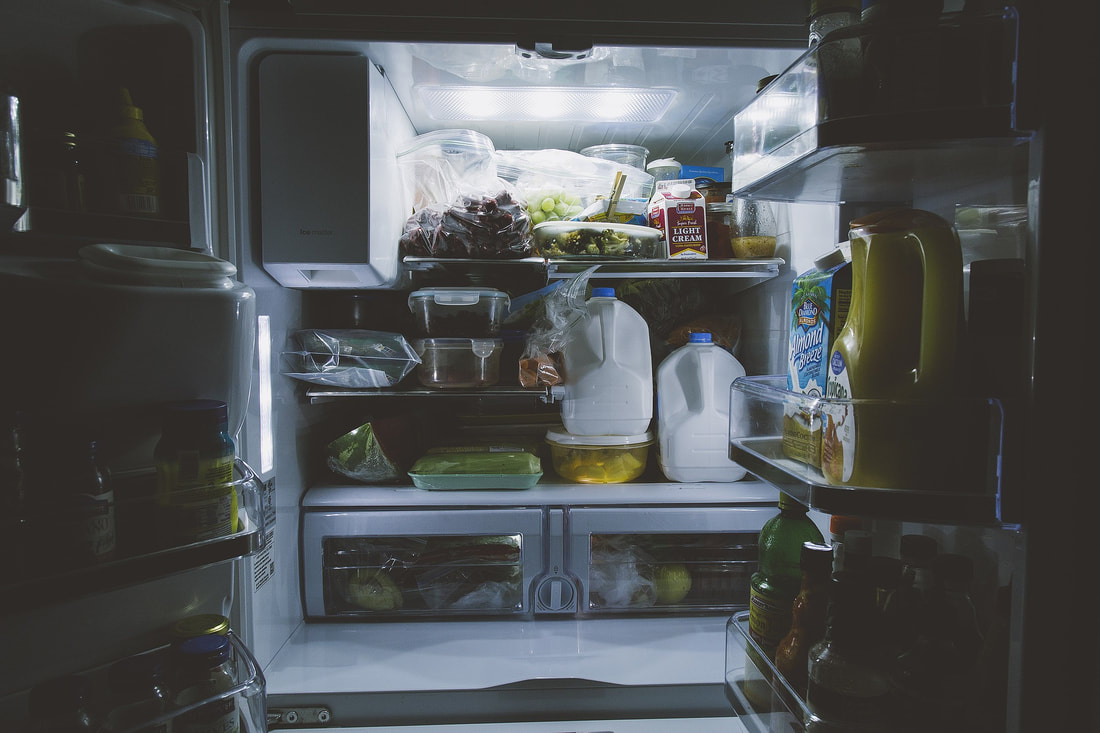 [1]https://www.ncdc.noaa.gov/monitoring-references/faq/indicators.php [2]https://www.giss.nasa.gov/research/news/20170118/ [3]10.1073/pnas.1717312115 [4] https://www.theguardian.com/global-development/2013/dec/14/toxic-ewaste-illegal-dumping-developing-countries The very first draft of the 2006 Universal Waste Law is traced back to May 11, 1995, when the EPA made standard regulations concerning the management of 3 types of universal waste: 1. Thermostats- used to contain mercury to regulate temperature changes but modern thermostats today are electronic and automatically programmed 2. Batteries- the batteries considered universal waste are those which contain heavy metals with high reactivity which makes them poisonous such as lead, lithium, and cadmium. 3. Pesticides- contain toxic chemicals which if not disposed of properly may be harmful to humans and animals. In July 1999, hazardous lamps (which includes fluorescent tubes) was added to the list of universal waste. Products with mercury were classified as universal waste starting from August 2005. At Ava Recycling we manage various forms of universal waste be they domestic, industrial or commercial. We also do e-cycling for electronic products, data recovery, and destruction, recycling of fluorescent tubes and batteries among others. E-waste ManagementE-waste is the short form of electronic waste, and it includes any kind of electronics and electrical appliances and devices which have exceeded their useful life, are broken or not working anymore. The term has also come to describe all forms of electrical and electronic devices which are due for resale, salvage, recycling and other non-harmful substitute uses. At AVA Recycling, we detail the methods used to collect e-waste to recycle them from secure small bins to large bins. It is critical that waste that can react or cause corrosion to be not mixed following the EPA guidelines. Fluorescent Recycling Recently, fluorescent tubes have become the most common housing electrical lighting equipment over incandescent or halogen bulbs. Fluorescent tubes contain trace amounts of mercury. There is only one way of collecting and recycling fluorescent tubes, that is using the HEPA (High-Efficiency Particulate Air) filter which Ava Recycling does on location by clients dropping off their waste on AVA processing locations or collect them where they want us to pick. Battery RecyclingNot all batteries are considered universal waste. Batteries under universal waste standards are nickel-cadmium, silver ion, lithium, lead, and mercury-containing batteries. At Ava Recycling we have generous offers for the collection and transport of these universal waste batteries. For large amounts of rechargeable lithium and lead ion batteries, we pay the client some salvage amount. We have bins specially designed to dispose of various batteries on site, and they come in different sizes from small to large. Also, we have several collection and delivery deals and discounts on some batteries such as rechargeable lead and lithium-ion batteries. Why You Should Choose Ava RecyclingFirst off, we have a strict sense of morality and ethical considerations. We believe that the earth's ecosystems are the most vital for all living organisms (including us humans) to keep thriving. Our first mission is to reduce pollution in the best way we can, and that is through recycling of universal waste. Secondly, our standards and operations fulfill the EPA requirements as spelled out in the Universal Waste Law of 2006. We are compliant-friendly with relevant laws such as Gramm-Leach-Bliley Act, HIPAA and FACTA compliance requirements. Thirdly, our rates and operational procedures are both customer-friendly and efficient. We have everything planned out for you so that you can focus on doing other things. At Ava Recycling we have a code of conduct where we treat waste disposal and recycling as an essential thing in the world right now with climate change become more adverse by the day. Ava Recycling has you covered. Links to external websites: https://www.avarecycling.com/about.html https://www.epa.gov/sites/production/files/2015-09/documents/introduction_to_universal_waste.pdf https://lbre.stanford.edu/pssistanford-recycling/frequently-asked-questions/frequently-asked-questions-e-waste https://www.epa.gov/hw/universal-waste https://www.dtsc.ca.gov/hazardouswaste/universalwaste/ https://blink.ucsd.edu/safety/research-lab/hazardous-waste/electronics.html How to Recycle Electronics and Computers Securely and Affordably You probably have an old PC or several of them, which you no longer find useful because either they have insufficient specs, they are old or they simply malfunctioned. Electronics we keep away are usually in bad conditions that does not seem right to hand over to someone in the name of helping the needy. When you first put that PC or electronic away, it was an upgrade and where to keep the old one wasn’t an issue. However, with time storage space becomes an issue. In addition, you will need to de-clutter your house once in while and this will involve doing away with items you are not using. But how you dispose electronics? Overview The first thing we think of when disposing a PC comes in mind is the data. Computers are the new diaries and notebooks. You had probably saved personal notes or data on personal finances on the drive, which is no longer in use. It could either be hardware or software damage. Whichever the case, you can’t destroy data with a sledgehammer. It is the traditional way of disposing items and now insecure. The best you can achieve with a sledgehammer on your electronics is breaking into smaller pieces. This does not solve your disposal issue. When it comes to a PC, the issue is more than how and where to dispose the parts. It is about the data. Why Recycle? Recycling is an opportunity for you to participate in improving our habitat. By choosing to recycle, you help to reduce congestion, clutter, and piling of pollutants. Recycling electronics is also one of the best ways of saving the environment by freeing it from junk. We should also be quick to facilitate this process because junk accumulates fast too. The amount of waste accumulates fast mainly because of increasing wealth among a rapidly rising population in urban areas. As people increase their income, they discard their products and move on to purchase more replacements. Most cities have a huge problem of dealing with waste because it rises faster than they can handle it. Without the participation of the public, it seems totally impossible to maintain an efficient recycling process. Other reasons for rising waste in urban areas are; rapid changes in technologies evident in production of electronics. The material used to build the electronics is barely biodegradable hence piling of waste. Apart from electronics, a high affinity for fast food is responsible for more waste generated in urban areas. Environmental Role Since waste is one of the biggest enemies to environmental preservation, recycling comes in handy. The reason for toxicity is the harmful chemicals used in building of the electronics. The greenhouse gases emerging from piled up rubbish and landfill sites increases pollution to destroy our habitat. The threat of global warming is therefore an international problem calling for cooperation from every responsible person around the globe. By choosing the option of recycling, we reduce the need for acquiring newer materials for manufacturing products afresh. This means we can spare our rain forests and enjoy a conducive habitat. Finally, the huge amounts of energy used during production and processing raw materials can be preserved via effective recycling. It would cost a fraction of the expense and energy consumption when using a recycling process in comparison to fresh manufacturing. Humanity Role With the high and uncontrollable urban migration around the globe, it is only fair that the public adopts a safer way of maintaining their health. The congestion in cities has thinned away space for waste. The landfill sites fill up faster than the authorities can manage. In fact, the UK authorities reported that all their landfills were almost full by 2010. Many other countries face the same problem both in industrialized and third world countries. Recycling helps to lower the national budget by saving millions of dollars spent in coping with the junk and finding new raw materials. This is crucial for the economy as cheaper means for manufacturing reduce time, labor, and cost of production. Perhaps most importantly, the recycling process helps to reserve natural resources for the future generation. This is a long-term vision poised to protect the needs of future occupants of planet earth. By recycling the already useless electronics, we can spare natural resources, energy, raw materials, and money for them to explore. Considering the fact that populations are rising fast around the globe, it is only fair that the current generation prepares for worst living conditions. What to Recycle Most electronics provide valuable sources of secondary raw materials. The unmatched competition in production of new electronic devices by tech companies has led to huge piles of disposed devices. Customers lose their gadgets earlier than their life span. The electronics’ life span has also diminished immensely. There is an equal rapid advances in recycling technology to match the increasing waste especially in cities. This is good news because it helps cut down on the increase of waste. We all love our electronic devices and spend a fortune to possess them. A majority of consumers take loans to purchase their coveted devices to own the latest and trendiest gadgets. From TVs, laptops, desktops, tablets, to home theaters, music equipment, and headphones, we keep accumulating them in our households. The most purchased devices are the beloved pocket size mobile phones with computer power. In the past year, a study revealed that up to 1.5 billion new cell phones were bought. This is equivalent to 1 for every 5 people on earth. The interesting is part is that the gadgets have a short life span and soon become electronic waste. If they are not traded in for new devices, cash, or credit, these gadgets quickly become useless and contribute to the waste threatening our global environment. This piling of unused mobile phones is fast becoming a global problem calling for quick action to preserve the environment. In the year preceding 2017 where the sale of 1.5 billion was experienced, up to 45 million tons of waste consisting mobile phones was recorded. The United Nations reported that only 20% of this was proper disposal. Everyone should be responsible enough to ensure they prepare for disposal by giving away their old phones and other devices to charity and recycling companies. Most users are not aware of the programs available that help to dispose these gadgets. In fact, they do not know they could an income from trading them in for cash. Not only are the phones and computers shipped for charity in needy areas but can also be refurbished and reused. The materials used in these devices are perfectly recoverable. This includes, glass, plastic, glass, and metal alike. Most electronic devices mentioned contained toxic substances and chemicals. This is what makes them all eligible for recycling to save the planet from harmful toxic contents. If left unused in landfills and open places, the chemicals react and produce greenhouse gadgets. We all know the harm posed by the greenhouse gases. We are also aware of the efforts to fight the accumulation of these gases around the world. Giving your electronic away for recycling is a simple task that goes a long way to contribute to these efforts. Today, 25 states have already passed laws compelling the residents to recycle old electronics. They laws come with definitions of what to recycle. Regardless of where you live however, you need to learn how to dispose electronic waste to help preserve our environment. For example, since most of the electronics contain our personal information, it is wise to wipe out before recycling. Wiping out the memory in electronic is not as easy as basic deleting of files. Each device has specific guidelines of formatting information beyond recovery. Resetting the devices to get all personal data off will require help from the manufacturer. Luckily, all information is available on the Internet. Find the manufacturer’s websites and get the instructions to clean your devices. How to Recycle Rapid changes in technologies renders electronics cheap and less profitable to recycle. Tech companies are always producing newer and cheaper gadgets using minimal resources. Without rare and precious minerals used in building the electronics, you might not make a lucrative earning from selling your old computer, phone, or home theater. The resale value of recycled commodities such as steel and oil-based plastics has also fallen sharply recently. This means that to gain reasonable amounts of profits from recycling products, you need to make give out huge piles of waste. To date, recycling is not easy because multinational tech companies continue to ship electronic scraps overseas or choose to discard them in warehouses. This makes the efforts of responsible recycling companies hectic and futile. Recycling companies are struggling to maintain their business and at times have to retain their moral responsibility over their quest for profitability. There is less and less revenue from recycled materials due to rapid production of cheap electronics to replace the old ones even before they live out their time. The Process Cleaning is the first step in a recycling firm. The toxic waste must be identified and separated for proper environmental-friendly disposal. Before recycling takes place, the gadgets are sorted and broken down into their component parts. This means reducing the devices into their original forms such as glass, plastic, and minerals. Some parts can be re-converted into raw materials and used in component products. Manual labor plays a big role in the entire process although machines are useful too. Machinery are closely monitored because of the technicality of separation involved. Supervising the machines helps to maintain close interaction to maintain precision and responsibility. There is more to recycling than people assume. It is not a task you would achieve on your own with a few of your employees in your business. This is the reason recycling companies are important to the preservation of the environment. Additional services included in the recycling package include; destruction of personal and business data in electronic devices. Some electronic devices contain sensitive data and it is only reasonable to spare the owners the heartache of exposing data to unauthorized access. Destroying data in hard drives is a major part of the process too. Copy machines, printers, fax machines, and other items such as phones may also contain data to be thoroughly deleted. Unfortunately, most people assume and give up their devices with sensitive data intact. For those with a huge volume of electronic devices for recycling, the companies pay for it. These items of high value may also get you the offer of free recycling. If they have high potential for refurbishing and reselling, they are profitable and should not be left lying in landfills. As an owner of used computers and other electronics, there is no need dismantling them by destroying them. Instead, pack it up and search for a nonprofit organization specializing in providing technology aid to those in need. Do not assume that your electronics are too small and useless; they can be useful as well to charity organization if you drop them off to their collecting points. Salvation Army and Goodwill are among the most commonly known charities known to specialize in old equipment for poorer and needy populations. Who should you Recycle? Most people avoid the recycling option because of the cost involved in recycling. They deem it too much work considering the little gain they stand to gain from it. When a few devices are involved and the profits expected are minimal, not many people agree to purse this idea. However, it is important to consider the benefits of being a responsible citizen and contributing towards preserving the environment. Everyone should be accountable to eliminate accumulation of electronic junk. With the reduced life of electronics, there is always something new to purchase sooner than we can plan for it. Every adults owns several electronics and children too. The urge to get the latest, most popular, trendiest, and most efficient product drives us to purchase electronics as soon as we are capable. The result is a pile of electronic junk in our backyard and attics. Instead of letting the marketers control our appetite to drop what we own for the sake of the latest products, it would be wise to collect the old stuff and give them away for recycling. Before giving away devices, remember to clean it up by deleting your personal data. Deleting data may not be enough so you need to learn formatting techniques to help you clear out all data from the memory. Ensure that the data is unrecoverable before giving it away so you will not risk becoming a victim of identity theft. Participating in the battle for preserving our planet is a noble idea for everyone. Recycling program and efforts are numerous and available to anyone who wants to volunteer. Volunteers are encouraged to participate by providing bonuses and awareness programs. The progress made over the years is expected to positively influence the battle to save planet earth from global warming. Anyone who owns old computers and other electronic equipment no longer useful in their homes is eligible for the programs. There are plenty of charity organizations specializing in old equipment. You do need to destroy it because it could help someone half across the world after refurbishing. At the same time, you will have saved your habitat by keeping it clean and free from toxins. The nonprofits have efficient networks to ensure that the old equipment get to the right users in good condition. If you have accumulated non bio-degradable materials including old batteries, toys, and other electronics in your trash bin or attic, collect them and take a trip to a recycling center. All you need is research on the Internet and find out the organizations nearest to you. You may also monitor their activities to identify the ones you want you feel interested to support or join. You will be finding numerous organizations involved in the task. Most of them are free and convenient with online directory lists to make donations easy. They also accept all sorts of electronics ranging from laptops, old design desktops, tablets, phones, printers, toys, and all used electronics working. You may also check with retail stores selling electronics. A good number of them provide customers with different ways to recycle electronics. You may easily find the contacts from the store where you bought the electronic devices. Some organizations allow you to trade in old computers and accessories for cash credit. This is perhaps the most lucrative option attracting most consumers to give up their old computers. What about my data destruction
Although most people may be ready to give up their electronics, the thought of giving up their sensitive data to unknown users is scary enough to restrain them. It is therefore, imperative to learn how to clear your hard disk from any personal data before giving it away whether for charity or sale. Traditionally, people would physically hit and crush the hard disk. It is no longer reasonable to destroy an equipment you are giving out for re-use. This means we need to learn how to destroy data without destruction of the gadget. Before deleting your personal data, make a backup of the documents. Ensure you got all the data as some could be hidden. Select your documents, images, videos, emails, and messages for copying. Uninstall and de-register programs and accounts if your PC is connected to the Internet. This may include; Apple iTunes or Microsoft Office online accounts. With your computer offline, create a new administrator account and use it to delete the rest of the accounts to eliminate all the remaining personal data. Knowing that deleting files is not enough to completely eliminate them from the computer or phone. It just eliminates them from the mainstream visible directory or table of contents. The truth is the information is still intact on the hard drive until it is over-written. Recovery programs can easily retrieve this information until you completely. One of the easiest ways is to use a USB thumb drive. The system restore function will help you take your PC or phone to its original condition at the point of manufacture. You may interrupt the boot process by pressing the appropriate key depending on the brand before selecting repair and then choosing ‘reformat hard drive’. Conclusion In conclusion, beware of the benefits of recycling electronics and take part in the process of preserving the environment. You will also be helping the needy, and making an income from your old devices by giving them up for charity. Remember too that data is a sensitive aspect in the digital era; it sells. It incriminates; it can cost you a reputation. You not only risk physical security but also it is a compromise eon your bank account, email, and other sensitive areas in your life. In the 21st century, every system is connected. A loophole into one can cause a ripple effect that can destroy your life. We all have sensitive information or data you consider private. It does not matter who the third party is, you will feel insecure when another person accesses your personal data. It is crucial to adopt secure data handling techniques as well as learn how to securely destruct data in case of a damaged PC or any electronic device. Recycling is the answer. |
AuthorAVA Recycling Blog Archives
May 2020
Categories |
Services |
Company |
|

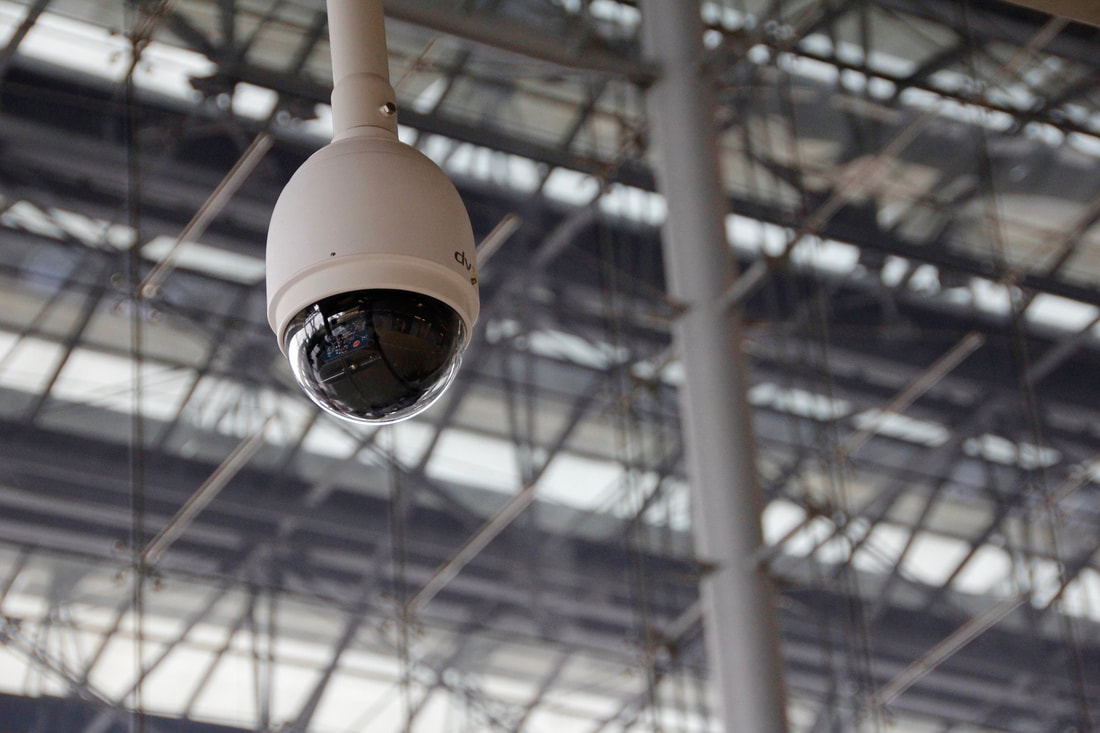
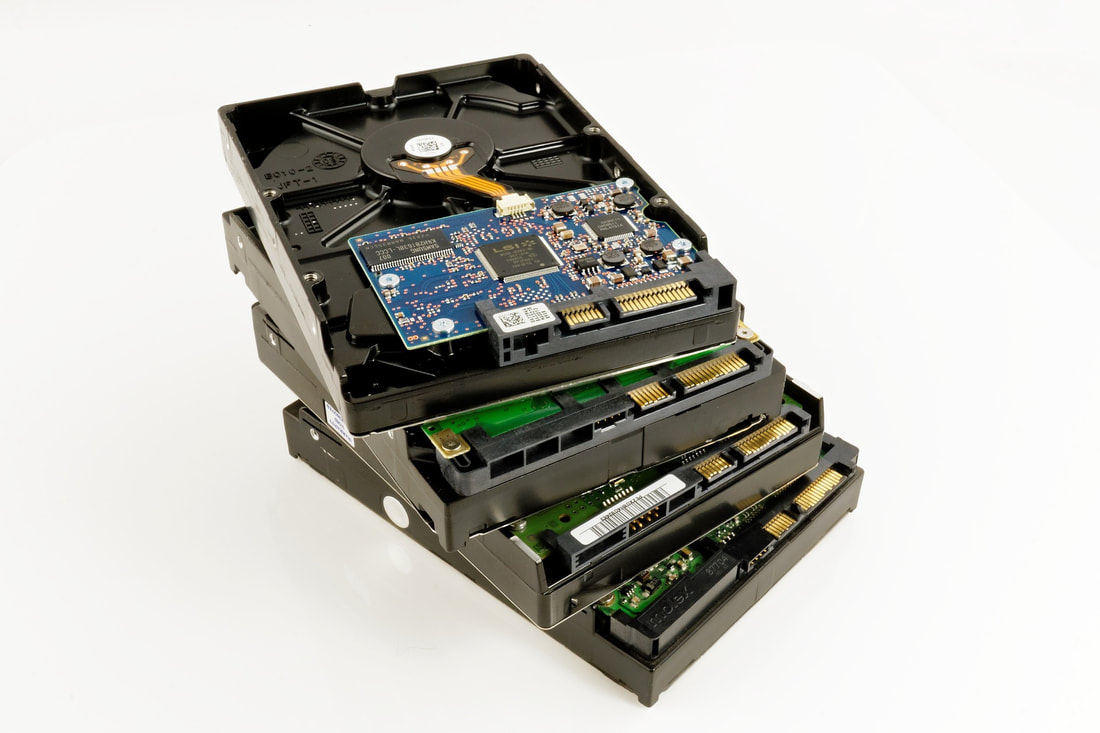
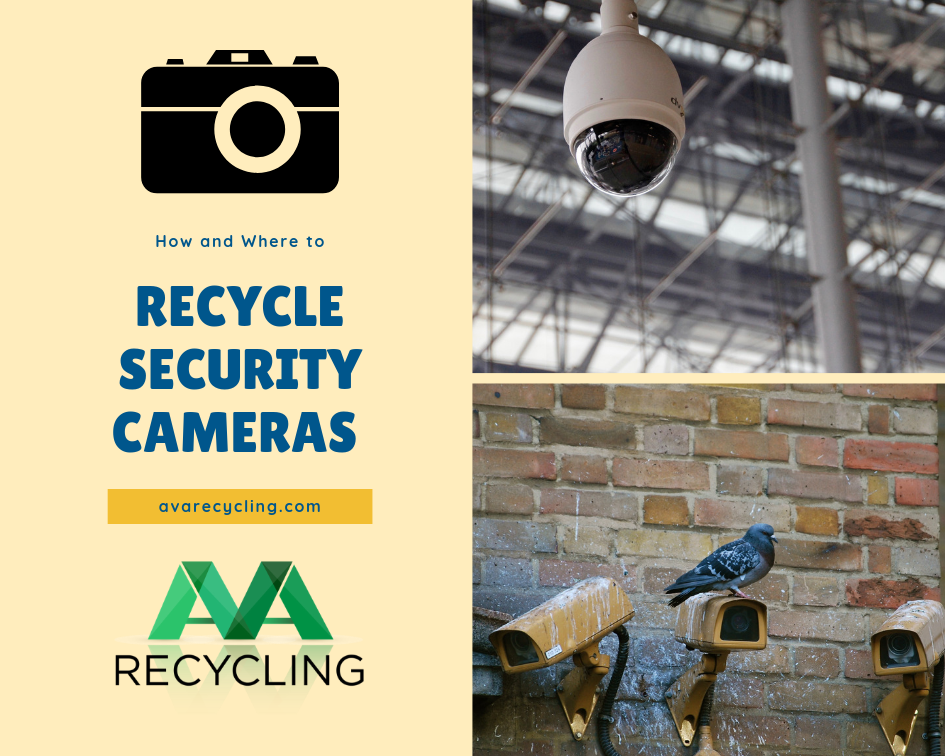


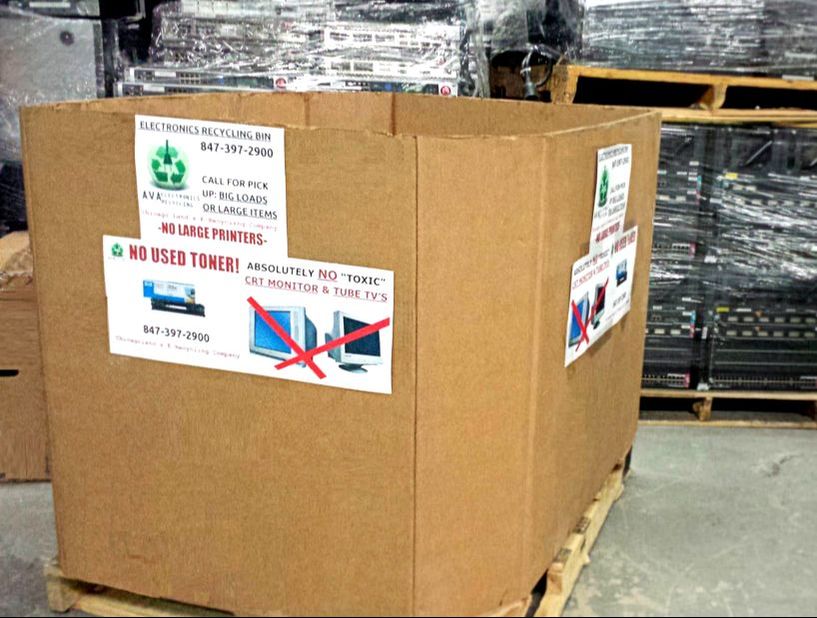
 RSS Feed
RSS Feed